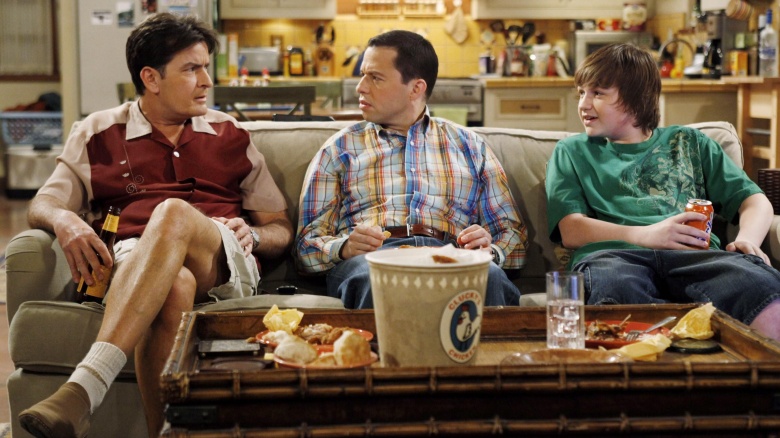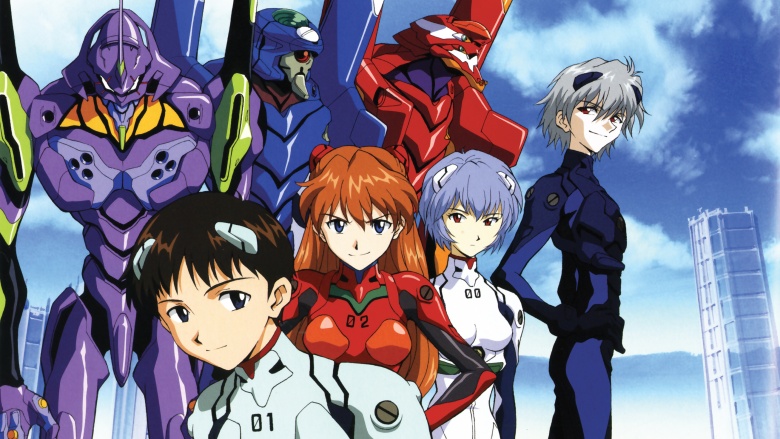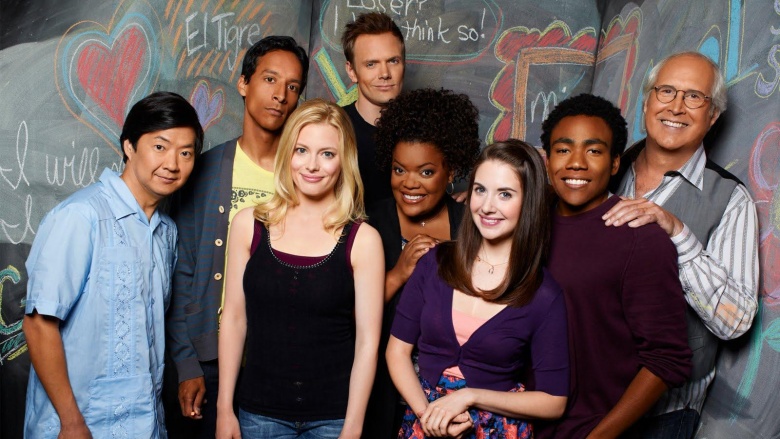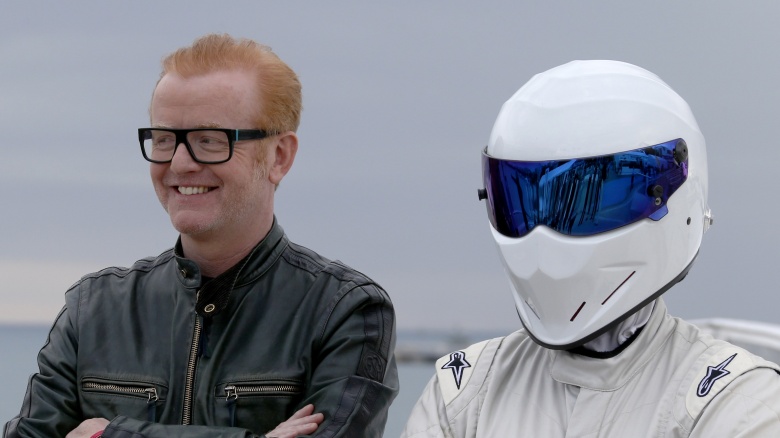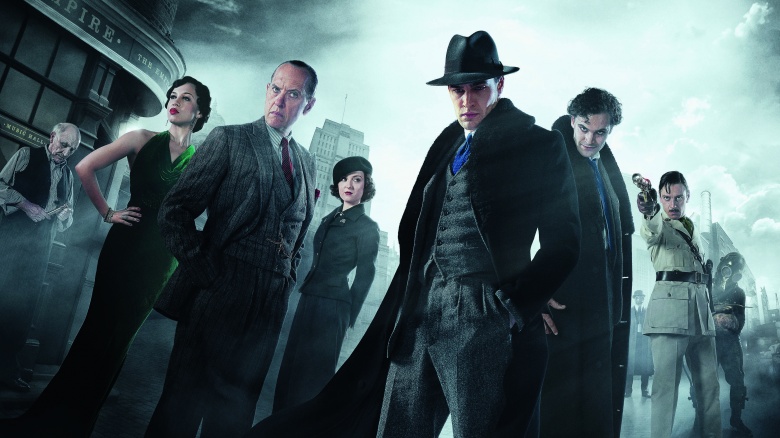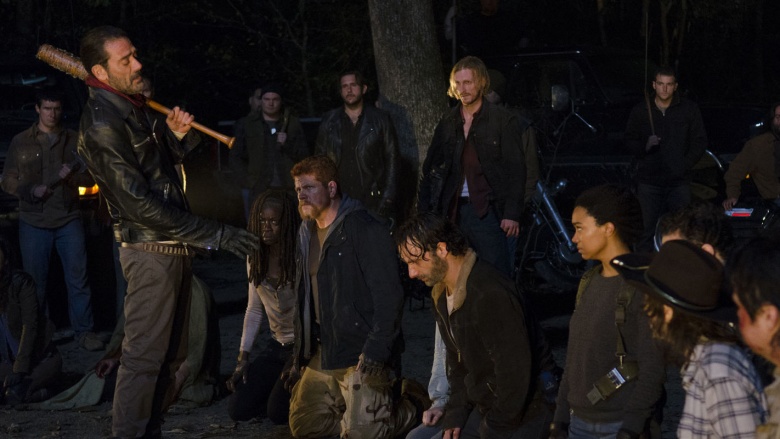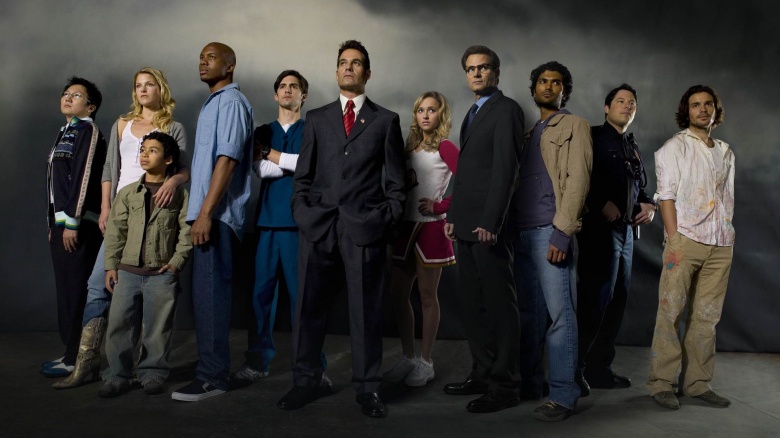TV Show Creators And Actors Who Apologized To Fans
As television viewers, we feel a very real sense of loyalty to our favorite shows—and the actors and showrunners who feed us daily entertainment know it's there. We exist in a symbiotic relationship, but sometimes, one side sucks a little too hard, and they have to apologize.
Chuck Lorre - Two and a Half Men
It's the lowbrow sitcom that refused to quit, and inadvertently allowed Charlie Sheen to believe he was full of tiger blood. Two and a Half Men had enough of an audience to last for 12 seasons, but no one ever made the mistake of confusing it with quality TV. The Wire reports that at the 2014 Television Academy Honors, Men co-creator Chuck Lorre won an award for his latest show, Mom, and used his speech to apologize, saying, "To do a show about people trying to redeem their lives and to salvage and repair the damage they've done, for me, it's an opportunity to apologize for Two and a Half Men." Apology accepted. And thanks for pushing the 'off' button on Sheen.
Hideaki Anno - Neon Genesis Evangelion
The popular anime series Evangelion is responsible for bringing modern anime and wicked god-robots to an international audience, despite its much-hated series finale. At the end of its 26-episode run, the show's final two episodes were reportedly behind schedule due to creator Hideaki Anno's indecisiveness about the show's actual ending. Evangelion ended up filling the space with flashbacks, sketches, and incomplete work as the characters psychoanalyzed themselves...which is just as awful to watch as it sounds. Anno received death threats, and while he remained steadfast in his decision to whiff the final episodes, he reportedly shaved his head in atonement. He also went back and completely redid the series' conclusion with a film, The End of Evangelion, which sounds like a pretty serious apology.
Dan Harmon - Community
The too-smart-for-TV sitcom Community seemed to be constantly embroiled in trouble during its six-season run, much of it stemming from fluctuating ratings and Chevy Chase being himself. By the show's fourth season, creator and showrunner Dan Harmon was cast out by NBC in an effort to alleviate some of the tension, and in the process, the network lost a portion of loyal Community fans. They realized their mistake and re-signed Harmon for season five, and in celebration, the justifiably embittered Harmon made some pretty sassy remarks on his podcast about the episodes filmed without him. He quickly realized his mistake and wrote a very long "apoloblog" directed towards the show's fans, actors, and crew, saying, "Even if my goal had been to hurt someone, it would never have been you." Is this a TV show, or did you just dump us for a younger audience, Harmon?
Chris Evans - Top Gear
No, not that Chris Evans. When Top Gear lost all three of its amazing hosts after Jeremy Clarkson's infamous punch-drunk assault of the show's crew, the BBC scrambled to keep its top-rated show running with new hosts and new gimmicks. Unfortunately, one of those gimmicks included doing donuts around a respected war memorial, Whitehall's Cenotaph. The stunt was quickly called out by veterans before the show even got to air. According to The Independent, co-host/bizarro Adam Savage clone Chris Evans said he and the crew were "mortified," and promised that shots of the memorial would be cut out before the show made it to air. If racing is an international sport, hating on Top Gear seems to be one exclusive to the UK—like cricket and the annual black pudding toss.
Everyone on Star Trek: The Next Generation - "Code of Honor"
Watching the third episode of Star Trek: The Next Generation is enough to leave you in astonishment that the show actually made it through a single season. "Code of Honor" portrays a backwards vision of a tribal space-Africa, and while the episode attempts to deliver a message about accepting different cultures, it misses so spectacularly, falling into blatant racism. At different times, almost everyone involved in the episode has apologized for its existence. Actor Jonathan Frakes stated that Trek creator Gene Roddenberry would have been embarrassed. Actor Brent Spiner remarked that the show never got "quite that bad again," and Michael Dorn, who didn't even appear in the episode, simply called it "the worst ever filmed."
Charlie Higson - Jekyll and Hyde
One might think that viewers would know what to expect from a show called Jekyll and Hyde, but apparently, a disproportionate number of British viewers just didn't get the memo. After the show's premiere episode, aired right around Halloween in 2015, broadcaster ITV received over 400 complaints that the show was "too scary" for its 6:30 PM time slot. Creator Charlie Higson immediately apologized, saying, "I'm sorry that anyone got upset by it. Obviously, it was my intention for it to be scary—it's a scary show. I was expecting more people to complain that it wasn't scary enough." Higson must have confused UK viewers for a jaded American audience.
Robert Kirkman - The Walking Dead
For The Walking Dead comic fans, Negan is the ultimate villain, and the entire TV series was a buildup to the moment that his barbed-wire bat came down on a beloved cast member's dome—a moment they were cheated out of when the show blacked out at the end of season 6. Fans were enraged at the cliffhanger, prompting creator Robert Kirkman to remind the audience that the whole thing is part of the show's master plan. Later, in the letters page of The Walking Dead #154, Kirkman issued an actual apology. "For some of you, [the cliffhanger] backfired and you're angry. And for that I'm sorry." Whether or not Kirkman was apologizing for fans' uncontrollable emotions or the actual finale is debatable, but it's better than nothing.
Tim Kring - Heroes
During Heroes' initial three-season run, Tim Kring gained the superpower of apology. While the show's first season received great ratings, the uneven pace and plot holes of the second season ended up costing the show a good chunk of its viewership. In 2007, Kring spoke to Entertainment Weekly and acknowledged the dip in the show's quality, and promised a complete turnaround for the rest of the season. He apologized again in 2008 for claiming that most of the the live audience were morons who didn't know how to use DVRs, thus costing Heroes ratings. Still no apology for Heroes Reborn, though.

